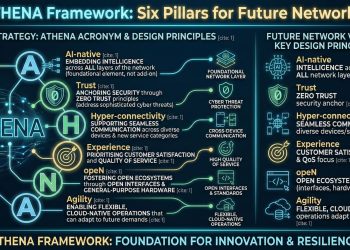Intel and Naver are reportedly joining forces to expand the software ecosystem for Intel’s Gaudi AI accelerator, an open-source platform. Artificial intelligence executives at Intel Corp. and Naver Corp. emphasized the importance of a unified approach to counter Nvidia Corp.’s dominance in the AI chip market.
According to recent reports, the collaboration between the Santa Clara, California-based chipmaker and South Korea’s internet giant focuses on creating an ‘open AI ecosystem.’ It aims to challenge Nvidia’s leading position in AI semiconductors through partnerships with major tech companies and enhancing Intel’s competitive edge.
On June 5th, Intel Korea held the inaugural ‘Intel AI Summit Seoul 2024’ at the JW Marriott Hotel in Seocho District, Seoul. This event, part of Intel’s annual global summit series, made its first occurrence in South Korea. The summit centered on Intel’s vision and strategies regarding artificial intelligence (AI).
During the summit’s keynote address, Justin Hotard, Senior Vice President of Intel’s Data Center and AI Group, highlighted the potential of AI, stating that it represents the most significant change since the advent of the internet. Hotard predicted that by 2030, every company would integrate AI into its operations. He outlined Intel’s strategy, emphasizing the importance of building an open ecosystem from personal computers to data centers. This strategy includes offering Intel Foundry for semiconductor outsourcing, thereby supporting the entire AI market.
In line with this collaborative approach, Intel, headquartered in Santa Clara, California, and South Korea’s leading internet company, is collaborating to expand the open-platform software ecosystem based on Intel’s AI accelerator, Gaudi.
The partnership has shown a broader industry trend, with various firms seeking to challenge Nvidia’s dominance in the AI sector. Ha Jung-Woo, head of Naver’s Future AI Center, highlighted the necessity of breaking the current monopoly situation to foster market growth and address challenges in securing GPU accelerators for AI device training. Ha played a pivotal role in the development of Naver’s family of large-language models, known as HyperClova X.
He also outlined plans to introduce open-source initiatives for the visual large language model (vLLM) Gaudi by year-end. Additionally, Naver aims to document and release various experimental findings conducted thus far, further contributing to the collaborative AI ecosystem.
Intel and Naver recently agreed to establish an AI chip research lab that is accessible to select South Korean universities and startups.
Also Read:
- South Korea’s Kakao Mobility Debuts Global Taxi-Hailing Platform to Challenge Uber
- Microsoft Teams Up with KT Corp to Drive AI and Cloud Advancements in Korea
- Science Ministry Orders Kakao to Improve Operations After Service Outages
- Hanwha Group Earns Coveted Spot on TIME100 Most Influential Companies List
- Archer Aviation and Kakao Mobility to Launch Electric Air Taxis in South Korea by 2026







